
How to fix your etiquette errors
When it comes to being polite and knowing etiquette rules, it’s easy to make mistakes—and who can blame you? Plenty of etiquette rules have changed in the past decade alone. And sometimes, the behaviors you think are polite—things you make an effort to do—can actually backfire. For many of these, the issue arises because you know the opposite behavior is impolite and then overcorrect. It’s just a matter of finding the middle ground, and etiquette expert Lisa Grotts can help you do just that.
“Being polite isn’t about following complicated rules, rather politeness is about being kind [and] respectful, cooperating and putting people first—including yourself, sometimes—in every situation,” she explains, adding that the person is much more important than the polite habit. “Once you ask yourself ‘Is this kind or helpful?’ instead of ‘Is this polite?’ it will be much easier to know what to do.”
If you’re guilty of any of these prickly politeness faux pas, you should also know the signs you’re too polite, rude conversation habits to avoid and the polite habits flight attendants dislike. But first, browse the list below for some so-called polite habits you can kick to the curb.
Get Reader’s Digest’s Read Up newsletter for more etiquette tips, humor, cleaning, travel, tech and fun facts all week long.

Cheek kissing or hugging hello
Before the pandemic, greetings often got a little physical: Kissing someone’s cheek, kissing the air by their ear, hugging and grabbing someone’s arm were all common practices. But even before everyone was concerned about spreading an infectious disease, plenty of people didn’t appreciate having their personal space invaded by these “polite” greetings, says etiquette and protocol coach Julia Esteve Boyd, co-host of the podcast Manners Matter 2.
Do this instead: “Unless you’re greeting a close friend or family member, skip any type of close physical contact and simply say hello,” she says, adding that a warm smile or friendly nod can convey the same feeling as a hug, but in a more polite way. While you’re at it, make sure you’re aware of these pandemic-era etiquette rules for visiting friends.
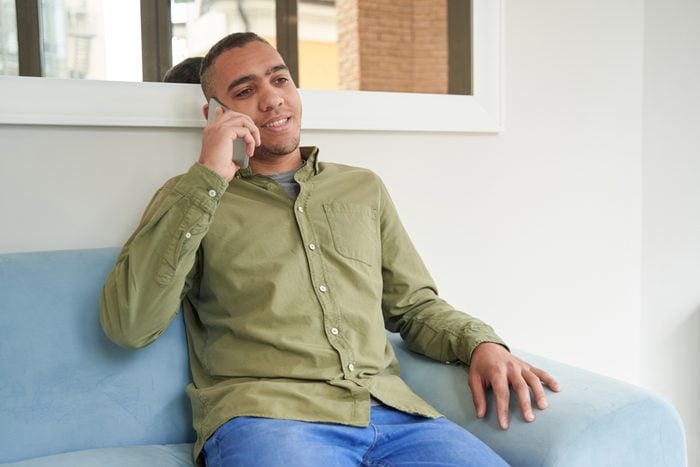
Leaving detailed voicemails
Two decades ago, voicemail was everything because, well, it was literally everything—short of leaving a note or emailing the person from your (non-portable) desktop computer, you had no other way to let someone know why you called. Polite etiquette at the time dictated that you leave a detailed and often repetitive voicemail so people would have all the info they needed before returning your call.
These days? Most people detest voicemail and see it as a waste of time. “You’re lucky if someone returns your call, much less listens to a whole voicemail,” says Boyd. “Texting is much more common and efficient.”
Do this instead: Skip the voicemail. Texting and emailing from your phone are quicker and more efficient ways to pass along information, and most people find them less annoying than dealing with voicemail. But don’t send a wall of text. Stay brief and to the point, says Boyd. And make sure you’re following proper group texting etiquette too.
Also know that it’s common practice now to call someone and not leave a message, with the assumption that they’ll see the missed-call notification on their phone and recognize it as their cue to return your call.

Automatically saying “yes”
“People feel like the ‘polite’ or ‘kind’ thing to do when someone asks them to do something is to say ‘yes’ right away, thinking they can change their mind later,” says Grotts. But while this may make the asker feel good in the moment, it’s not a nice thing to do unless you’re sure you can keep that commitment, she says. This can lead to frustration, resentment and hurt feelings on both sides, and it can give you a chronic sense of being overcommitted and overwhelmed.
Do this instead: Honesty plays a big part in the things polite people always say, so make sure your “yes” really means yes. Worried you’ll come off as harsh by declining a request? “It is polite to say no when you can’t do something,” Grotts says. “If you aren’t sure, instead of automatically agreeing, say ‘Let me check my schedule and get back to you.'”

Replying “thanks” to a group email
You may think that if a bunch of people are included on an email, the polite thing to do is keep everyone in the loop by hitting “reply all.” Unfortunately, most people get dozens of email messages a day, and “reply all” should be used only for information that the entire group needs. The biggest annoyance? “When people simply [reply] ‘thanks’ to the whole group. If everyone does that, it creates a tidal wave of emails that don’t add any information,” says Boyd. Plus, it makes it really difficult to find the necessary details, forcing people to scroll through all the replies for an earlier nugget of info.
Do this instead: If you want the sender to know you got the email, feel free to reply to that person and that person alone. In general, good email etiquette dictates that you reply only to the person or persons who need the information you are sending.
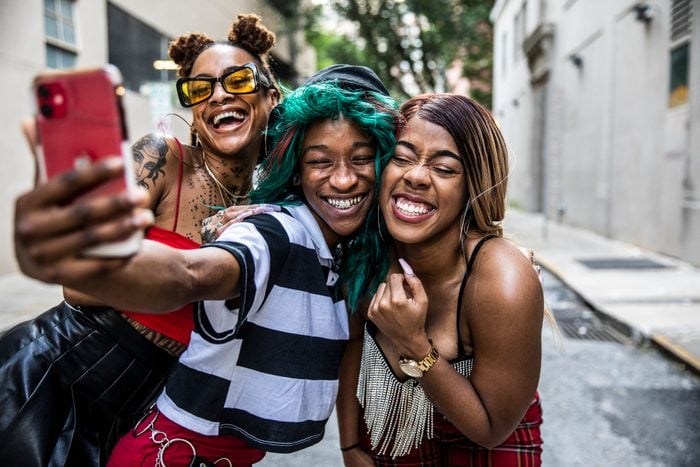
Tagging people on social media
Tagging friends, family and even professional acquaintances on social media has become the norm. And at first, it may seem like the polite thing to do—after all, they want to see the pics and be included, right? Not so much, says Boyd. People have different comfort levels in regard to their online presence and privacy, and they may not appreciate you sending up a digital “you are here” flag, she explains. It’s not just privacy; people may also resist being tagged because they don’t want to hurt others’ feelings, they want to avoid being targeted by scammers or they dislike being the subject of comments.
Do this instead: Here’s something naturally polite people do: Always ask someone if they’d like to be tagged before doing so, and respect their decision, says Boyd. In addition, set your settings on social media to review any tags of you before they are posted.
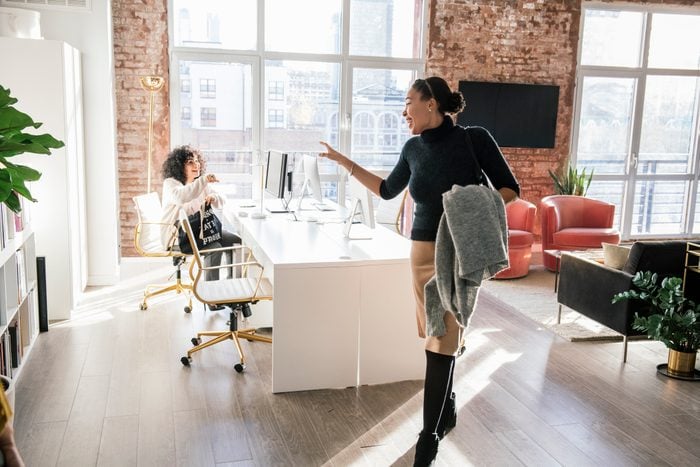
Saying “no worries”
Saying thank you is definitely a polite habit, as is acknowledging gratitude—as long as you choose positive phrasing, says Grotts. It’s common to reply “no worries,” “no big deal” or “no problem” when someone thanks you, and while these aren’t rude, they can leave the other person feeling bad. “These phrases imply that they were inconveniencing you or that you saw their request as a problem,” she explains.
Do this instead: “It’s more polite to answer with ‘you’re welcome’ or ‘my pleasure,'” says Grotts.
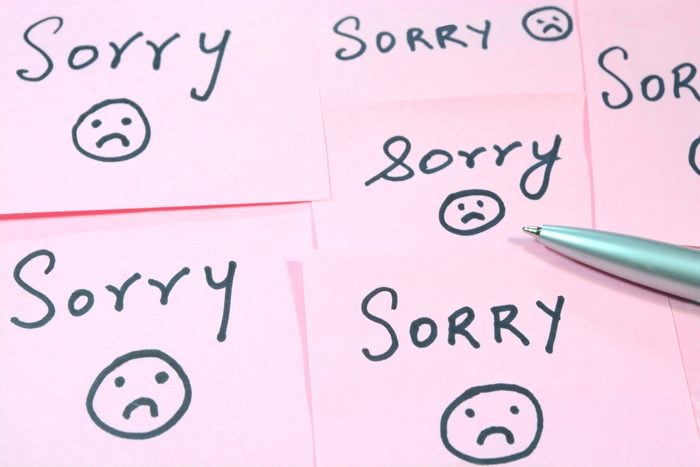
Apologizing for every little thing
If you step on someone’s foot or make a mistake at work, the most polite thing you can do is offer an immediate and sincere apology. But some people have a habit of apologizing for very minor infractions (“I’m so sorry for loading the dishwasher wrong”) or for things they aren’t responsible for (“I’m so sorry the weather is terrible today!”), or they tend to apologize on repeat. Do this constantly and not only will it annoy others, but it’ll make them worry that they’re doing something to make you feel bad so often. And that, in turn, makes them feel bad, says Grotts.
Do this instead: If you do something wrong, offer a sincere apology commensurate to the offense—no overapologizing! And if it’s something you can’t control or have already apologized for, you can skip the “sorry,” she says. “The best thing to do is turn it into a positive,” she says. “For instance, instead of saying ‘I’m so sorry I was late,’ you can say, ‘Thank you for being so patient. I’ll be more prompt next time.’ That leaves both of you feeling good about the interaction.”

Showing up early
You know that being late to a get-together is disrespectful and inadvisable, so you might resolve to arrive early, just to be on the safe side. And if you offer your help once you’re there? Well, you may as well be the guest of honor … right?
It turns out this “polite” habit really bugs hosts. They invited you to arrive at 6 p.m., so they most likely aren’t ready for—and don’t want—guests to arrive before then.
Do this instead: Unless the host has asked you to come early to help, don’t show up before the start time. And yes, that means being just a little “late” is fine. “It’s polite to be on time, but giving your host a few minutes is even more polite,” says Grotts.
Just don’t be too late. Showing up an hour after a party’s start time doesn’t make you look cool. In fact, many etiquette experts say being on time is one of those etiquette rules we never should have abandoned.
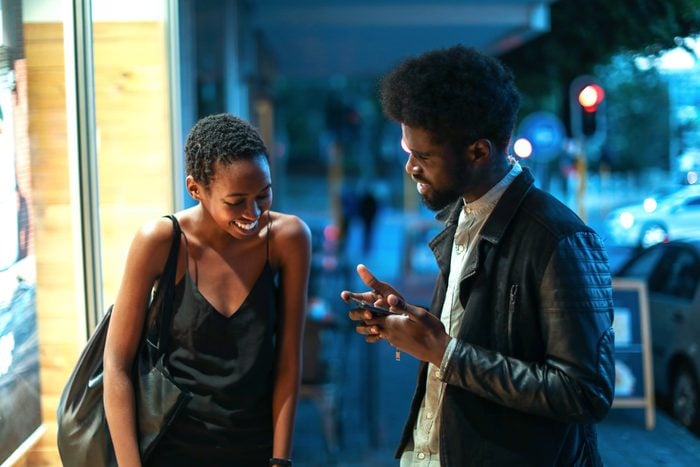
Showering someone with compliments
Compliments are a tricky business. On a surface level, they might seem like the epitome of politeness. But they can come across in ways you didn’t intend. Compliments about people’s appearance, in particular, can make them feel uncomfortable or even objectified. Telling someone they look fantastic and must have lost weight may be your way of saying they look nice, but they might be crushed at the negative implications: They didn’t look great before they lost weight. “Your comments may be well-meaning, but sometimes being too direct is off-putting,” Grotts explains.
Do this instead: Take a moment to consider the person and the environment before offering effusive compliments. When you do compliment people, be genuine and have open body language. “Without eye contact, you might as well pay the compliment on Facebook,” Grotts says. And be very careful of these so-called compliments that are actually insulting.
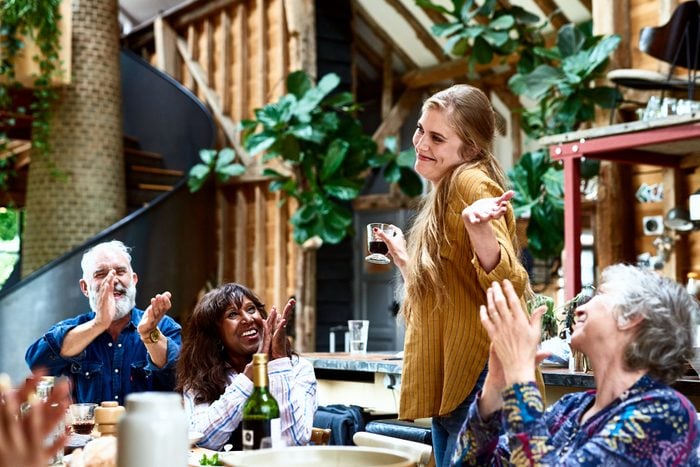
Being self-deprecating
Compliments and self-deprecating humor are two sides of the same coin. Because getting compliments can be a little uncomfortable, it can be tempting to downplay them. Besides, you don’t want to seem like a braggart, responding to a compliment with “I know, right? I’m brilliant!”
So when someone says you look great today, your gut reaction may be to respond with “Really? I just rolled out of bed!” But self-deprecating responses like this can affront the person who paid the compliment. You’re basically telling them that they’re totally wrong.
Do this instead: When someone gives you a genuine compliment, stick to responding with “thank you.”
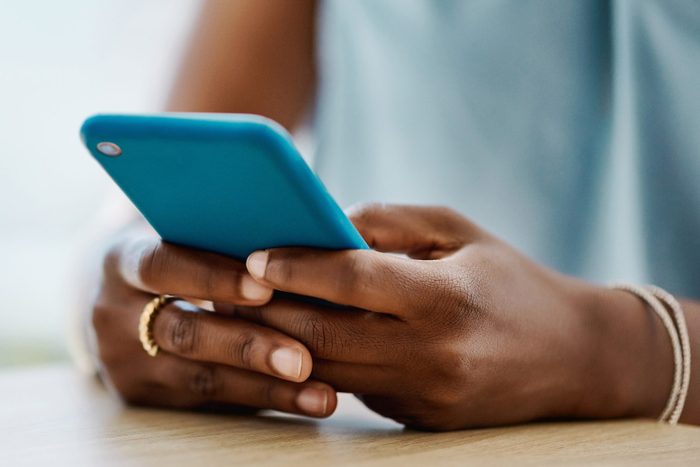
RSVPing informally
In the era of Facebook invites, Zoom calls and text chains, it may seem like the formality of RSVPing is a thing of the past. Far from it, says Grotts! Not only is RSVPing still absolutely the right thing to do, but how you do it makes all the difference. You may think you’re being polite by just texting the host “I’ll be there” or mentioning it in a phone call. But you should be respectful of how the host asked you to RSVP.
Do this instead: “If they give a phone number, use it; [don’t RSVP] in other ways,” Grotts says. If they send you a card to return (you’ll often see this with wedding invites), mail it back. And even if it’s a Facebook invite, it’s courteous to respond “Going” to the event. That way, the host won’t have to sort through several different channels to find the “yes” answers.
Why does it matter whether you break this etiquette rule? Hosts use RSVP responses in the party-planning process to help them estimate everything from food and beverage needs to seating arrangements.

Sharing a lot of personal information right away
As a child, you probably learned it’s impolite to give one-word answers. So you may end up overcorrecting when someone asks you a question, becoming overly generous with details about yourself. Maybe you absolutely despise small talk and think it’s better to appear genuine. But the person you’re talking to might not agree and may find your oversharing off-putting. Be especially careful about responding this way in a professional setting, with someone you’re meeting for the first time and when opinions are involved.
Do this instead: Leave the personal info for your significant other and best friends. “Less is more when it comes to personal opinions, especially in the company of acquaintances versus good friends,” says Grotts. And while you’re at it, avoid interrogating acquaintances with these questions polite people never ask.

Waving someone through at a four-way stop
It may seem polite to let other drivers go ahead of you, especially at a perplexing intersection like a four-way stop, when it can be challenging to know whose turn it is. “We’ve all been there: trying to make eye contact in every direction to see who goes first, but there’s always someone who doesn’t follow this nonverbal rule and sits at an intersection without moving,” Grotts says. That can be a major annoyance, not just for the drivers waiting at the other stop signs but especially for anyone waiting behind you.
Do this instead: Follow the rules of the road and encourage others to do the same. Not sure whose turn it is? Here’s the driving etiquette rule you forgot since driver’s ed: The first car to stop at the intersection gets to go first. When two cars arrive at the same time, the car to the right can proceed before the other. In other words, as long as it’s safe to do so, and you have the right of way and are not cutting anyone off, hit the gas.
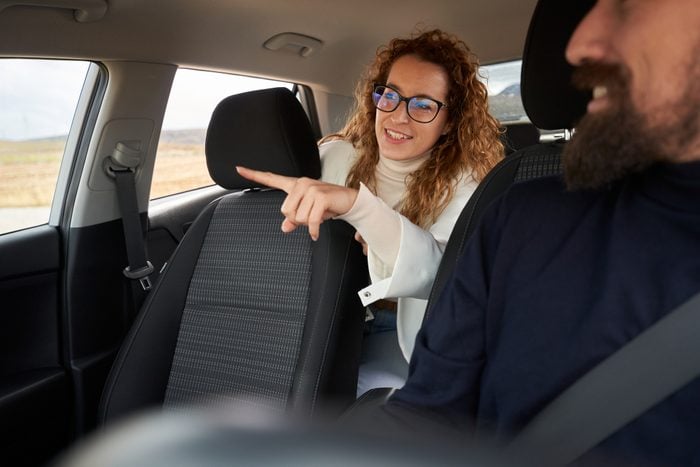
Offering driving tips or directions without being asked
Offering directions in the age of GPS is likely unnecessary and can even add confusion, as the technology has gotten so good that it knows how to get to the destination better than you do, even accounting for traffic and accidents, says Boyd. However polite you may think you’re being, there’s no need to offer your own turn-by-turn directions. Most will find that flat-out annoying.
The same goes for offering unsolicited driving tips, like when to break or how fast to turn. Even as you’re doing it, you probably already know in your heart of hearts that correcting someone’s driving is unwelcome.
Do this instead: If the driver asks for driving directions or clarification, do your best to answer helpfully. Otherwise, unless you see a serious potential for danger, keep your would-be driving-instructor behaviors to yourself. This goes double in a rideshare—one thing Uber drivers really dislike is when passengers chime in with navigation tips.
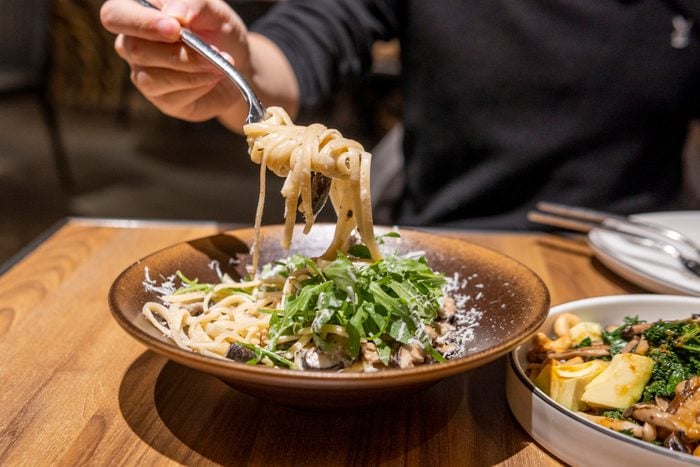
Offering to share a bite of food
Have a delicious crème brûlée or a beautiful boba tea? Your first instinct may be to share a bite or sip with your dining companions—you just know they’ll love it if they give it a taste. But while that is a generous instinct, it really isn’t polite, says Boyd. “Sharing a bite of food off your fork or a sip out of your glass should always be avoided,” she explains.
Do this instead: If you want to share, cut off a piece of the food, then use the other person’s fork to pick it up and hand it to them, she says. “And sorry, there’s no polite way to ‘share’ a straw,” she adds. The exception? If the person is someone you kiss on the mouth regularly. In that case, sharing food probably isn’t that big of a deal.
Another piece of restaurant etiquette to commit to memory: If someone says they don’t want to try your food, let it go. Attempting to peer-pressure someone into eating a bite of your food—or placing it on their plate without their permission—is a big no-no.
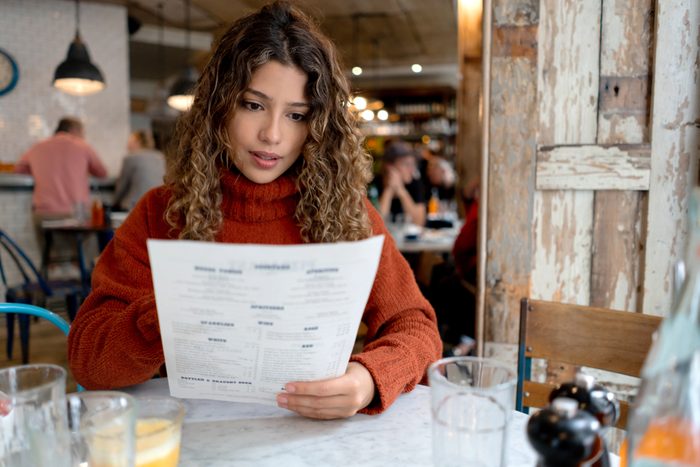
Ordering for someone else
Hollywood movies make it seem polite or cute to place someone else’s order. Oh look, audiences are meant to think, he knows her so well, he can speak for her! “This can come across as more condescending than helpful,” says Boyd. Your dining companions can speak and select their food for themselves.
Do this instead: Ask your dining companions if they’d like suggestions, but let them order for themselves. An exception? Letting young kids order for themselves. It’s one of those “polite” habits that fast-food employees secretly dislike. While it might seem adorable to you, it can put the server or cashier in an awkward position if they can’t understand what the tot is saying.
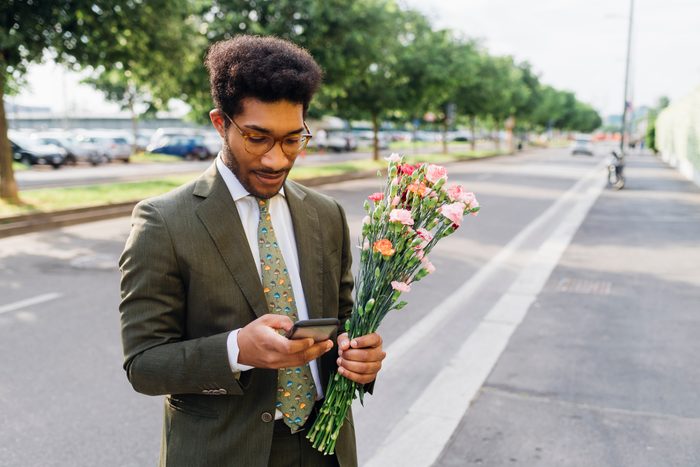
Being vague when asked on a date
It’s become common for people to hedge their bets when responding to a casual invitation, like a suggestion to hang out or get a drink, says Boyd. This may seem polite because you’re not rejecting their social or romantic advances immediately. But whether you’re stalling because you want to see if you get a better offer or you’re just not sure how to answer, being vague will only cause confusion—and that’s definitely impolite, she explains.
Do this instead: Be clear with yourself, first and foremost, about what you really want to do. You don’t owe anyone your time, even a would-be suitor. From there, answer clearly and authentically, says Boyd. Don’t string people along, either as friends or romantic partners. And whatever you do, give an answer—”ghosting” is incredibly painful and rude.
Additional reporting by Meghan Jones.
Sources:
- Lisa Grotts, etiquette expert with Golden Rules Gal
- Julia Esteve Boyd, etiquette and protocol coach and co-host of the podcast Manners Matter 2
